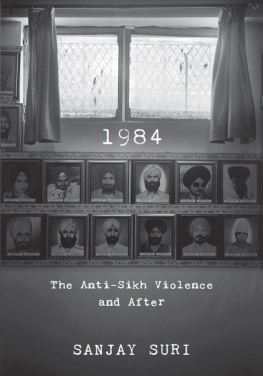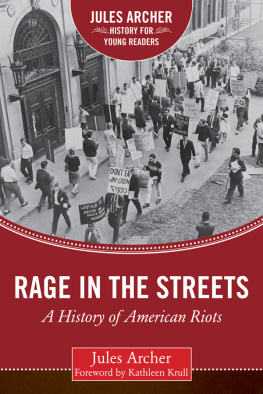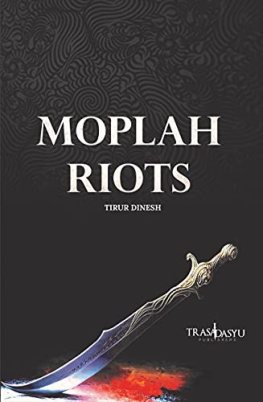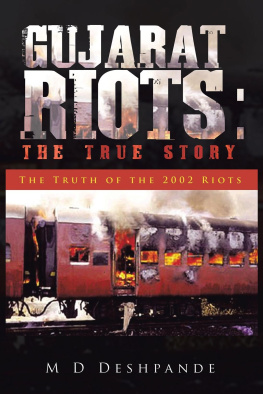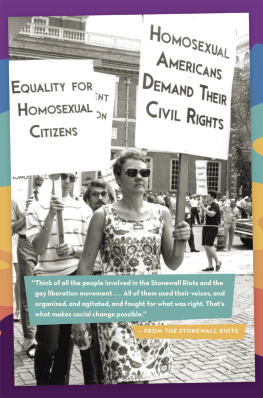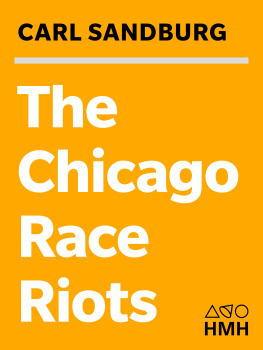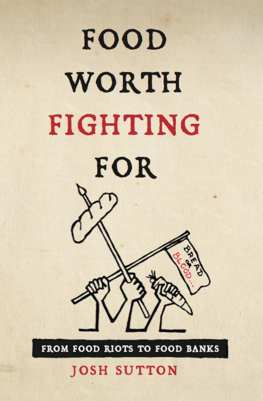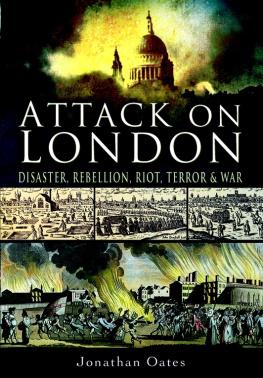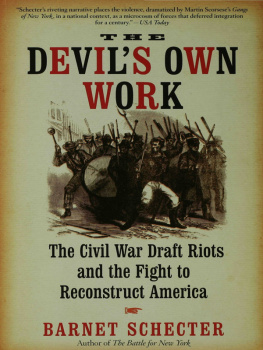Joel Tyler Headley - The Great Riots of New York
Here you can read online Joel Tyler Headley - The Great Riots of New York full text of the book (entire story) in english for free. Download pdf and epub, get meaning, cover and reviews about this ebook. year: 2012, publisher: Andrews UK, genre: Art. Description of the work, (preface) as well as reviews are available. Best literature library LitArk.com created for fans of good reading and offers a wide selection of genres:
Romance novel
Science fiction
Adventure
Detective
Science
History
Home and family
Prose
Art
Politics
Computer
Non-fiction
Religion
Business
Children
Humor
Choose a favorite category and find really read worthwhile books. Enjoy immersion in the world of imagination, feel the emotions of the characters or learn something new for yourself, make an fascinating discovery.

- Book:The Great Riots of New York
- Author:
- Publisher:Andrews UK
- Genre:
- Year:2012
- Rating:5 / 5
- Favourites:Add to favourites
- Your mark:
- 100
- 1
- 2
- 3
- 4
- 5
The Great Riots of New York: summary, description and annotation
We offer to read an annotation, description, summary or preface (depends on what the author of the book "The Great Riots of New York" wrote himself). If you haven't found the necessary information about the book — write in the comments, we will try to find it.
The City of New York has always been a melting pot of ideas and politics, and has seen many different riots during its history. This guide concentrates on those that took place in the 18th and 19th Centuries, such as the Stamp-Act Riot, the Draft Riots and the Orange Riots.
The Great Riots of New York — read online for free the complete book (whole text) full work
Below is the text of the book, divided by pages. System saving the place of the last page read, allows you to conveniently read the book "The Great Riots of New York" online for free, without having to search again every time where you left off. Put a bookmark, and you can go to the page where you finished reading at any time.
Font size:
Interval:
Bookmark:
THE GREAT RIOTS
OF NEW YORK
1712 to 1873
INCLUDING A FULL AND COMPLETE ACCOUNT OF THE FOUR DAYS' DRAFT RIOT OF 1863
By HON. J.T. HEADLEY
TO THE METROPOLITAN POLICE, WHOSE UNWAVERING FIDELITY AND COURAGE IN THE PAST, ARE A SURE GUARANTEE OF WHAT THEY WILL DO FOR
NEW YORK CITY IN THE FUTURE, THIS WORK IS RESPECTFULLY INSCRIBED BY THE AUTHOR.
This edited version, including layout, typography, additions to text, cover artwork and other unique factors is copyright 2012 Andrews UK Limited
This book is sold subject to the condition that it shall not, by way of trade or otherwise, be lent, resold, hired out or otherwise circulated without the publishers prior written consent in any form of binding or cover other than that in which it is published, and without a similar condition being imposed on the subsequent purchaser.
PREFACE.
The materials for the descriptions of the Negro and Doctors' Riots were gathered from the Archives of the Historical Society; those of the immediately succeeding ones, from the press of the times.
For the scenes and incidents that occurred on the stage and behind the curtain in the Astor-place Opera Riot, I am indebted to a pamphlet entitled "Behind the Scenes."
The materials for the history of the Draft Riots were obtained in part from the Daily Press, and in part from the City and Military Authorities, especially Commissioner Acton, Seth Hawley, General Brown, and Colonel Frothingham, who succeeded in putting them down.
Mr. David Barnes, who published, some ten years ago, a pamphlet entitled"The Metropolitan Police," kindly furnished me facts relating to thePolice Department of great value, and which saved me much labor and time.
Much difficulty has been encountered in gathering together, from various quarters, the facts spread over a century and a half, but it is believed that everything necessary to a complete understanding of the subjects treated of has been given, consistent with the continuity and interest of the narrative.
Of course some minor riots - a collection of mobs that were easily dispersed by the police, and were characterized by no prolonged struggle or striking incidents - are not mentioned.
THE GREAT RIOTS OF NEW YORK CITY.
CHAPTER I.
Character of a City illustrated by Riots. - New Material for History ofDraft Riots. - History of the Rebellion incomplete without History ofthem. - The Fate of the Nation resting on the Issues of the Struggle in NewYork City. - The best Plan to adopt for Protection against Mobs.
The history of the riots that have taken place in a great city from its foundation, is a curious and unique one, and illustrates the peculiar changes in tone and temper that have come over it in the course of its development and growth. They exhibit also one phase of its moral character - furnish a sort of moral history of that vast, ignorant, turbulent class which is one of the distinguishing features of a great city, and at the same time the chief cause of its solicitude and anxiety, and often of dread.
The immediate cause, however, of my taking up the subject, was a request from some of the chief actors in putting down the Draft Riots of 1863, to write a history of them. It was argued that it had never been written, except in a detached and fragmentary way in the daily press, which, from the hurried manner in which it was done, was necessarily incomplete, and more or less erroneous.
It was also said, and truly, that those who, by their courage and energy, saved the city, and who now would aid me not only officially, but by their personal recollections and private memoranda, would soon pass away, and thus valuable material be lost.
Besides these valid reasons, it was asserted that the history of the rebellion was not complete without it, and yet no historian of that most important event in our national life had given the riots the prominence they deserved, but simply referred to them as a side issue, instead of having a vital bearing on the fate of the war and the nation. On no single battle or campaign did the destiny of the country hinge as upon that short, sharp campaign carried on by General Brown and the Police Commissioners against the rioters in the streets of New York, in the second week of July, 1863. Losses and defeats in the field could be and were repaired, but defeat in New York would in all probability have ended the war. It is not necessary to refer to the immediate direct effects of such a disaster on the army in the field, although it is scarcely possible to over-estimate the calamitous results that would have followed the instantaneous stoppage, even for a short time, of the vast accumulations of provisions, ammunition, and supplies of all kinds, that were on their way to the army through New York. Nor is it necessary to speculate on the effect of the diversion of troops from the front that such an event would have compelled, in order to recover so vital a point. Washington had better be uncovered than New York be lost. One thing only is needed to show how complete and irreparable the disaster would have been; namely, the effect it would have had on the finances of the country. With the great banking-houses and moneyed institutions of New York sacked and destroyed, the financial credit of the country would have broken down utterly. The crash of falling houses all over the country that would have followed financial disaster here, would have been like that of falling trees in a forest swept by a hurricane. Had the rioters got complete possession of the city but for a single day, their first dash would have been for the treasures piled up in its moneyed institutions. Once in possession of these, they, like the mobs of Paris, would have fired the city before yielding them up. In the crisis that was then upon us, it would not have required a long stoppage in this financial centre of the country to have effected a second revolution. With no credit abroad and no money at home, the Government would have been completely paralyzed. Not long possession of the city was needed, but only swift destruction.
Doubtless the disastrous effects would have been increased tenfold, if possible, by uprisings in other cities, which events showed were to follow. Even partial success developed hostile elements slumbering in various parts of the country, and running from Boston almost to the extreme West.
In this view of the case, these riots assume a magnitude and importance that one cannot contemplate without a feeling of terror, and the truth of history requires that their proper place should be assigned them, and those who put them down have an honorable position beside our successful commanders and brave soldiers. It is also important, as a lesson for the future, and naturally brings up the question, what are the best measures, and what is the best policy for the city of New York to adopt, in order to protect itself from that which to-day constitutes its greatest danger - mob violence? If it ever falls in ruins, the work of destruction will commence and end within its own limits. We have a police and city military which have been thought to be sufficient, but experience has shown that though this provision may be ample to restore law and order in the end, it works slowly, often unwisely, and always with an unnecessary expenditure of life. In conversing with those of largest experience and intelligence in the police department on this subject of such great and growing importance, we are convinced, from their statements and views, a vast improvement in this matter can be made, while the cost to the city, instead of being increased, will be lessened; that is, a cheaper, wiser, and more effectual plan than the present one can be adopted. Of course this does not refer to mere local disturbances, which the police force in the ordinary discharge of its duties can quell, but to those great outbreaks which make it necessary to call out the military. Not that there might not be exigencies in which it would be necessary to resort, not only to the military of the city, but to invoke the aid of neighboring States; for a riot may assume the proportions of a revolution, but for such no local permanent remedy can be furnished.
Next pageFont size:
Interval:
Bookmark:
Similar books «The Great Riots of New York»
Look at similar books to The Great Riots of New York. We have selected literature similar in name and meaning in the hope of providing readers with more options to find new, interesting, not yet read works.
Discussion, reviews of the book The Great Riots of New York and just readers' own opinions. Leave your comments, write what you think about the work, its meaning or the main characters. Specify what exactly you liked and what you didn't like, and why you think so.

